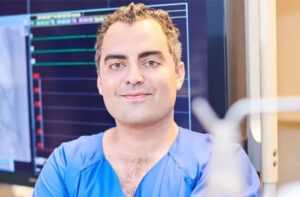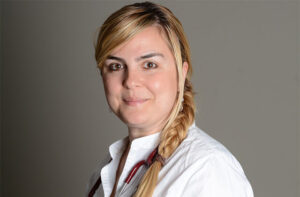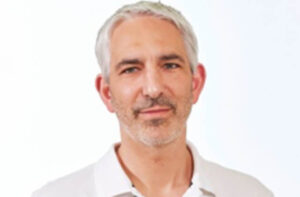
Cardisiography (CSG)
CSG is the leading new method for identifying common diseases of the heart as quickly as possible. CSG can very reliably exclude or confirm presence of circulatory disorders of the heart in patients. This gives doctors the opportunity to provide patients with precise information easily, quickly and non-invasively, and then promptly put together appropriate treatment plans. Early detection can help to avoid serious consequences such as heart attacks, sudden cardiac death and/or ventricular fibrillation.
CSG has been specially developed for use by general practitioners and cardiologists in order to be able to detect or rule out heart diseases quickly, precisely, and non-invasively. Through the use of artificial intelligence, CSG exceeds current medical standards. The sensitivity rate of CSG (> 90%), which is significantly higher than that of the stress ECG, allows, among other things, for an early choice of the right treatment path.
The Advantages at a Glance
Non-invasive
Cardisiography is non-invasive and is performed while the patient is in a resting state.
Fast results
Signal recording and results within 10 minutes.
Billable
Accepted by many health insurers in Germany (GOÄ 657, A658 & HzV).
Accurate
Sensitivity > 90% (compared to stress ECG 45-50%).
Made in Germany
Developed with ♡ in Europe to save lives globally.
Proven by Research
Supported by a multitude of scientific research studies.
Cardisiography Can
Clarify
A CSG report will provide clarification of a patient’s cardiac health in the case of undefined symptoms, such as shortness of breath, fatigue or back pain, as well as before anesthesia.
Help Prevent
Using CSG in regular medical checkups, e.g. annual visits, before sporting events or long trips, or even after infection with COVID-19 helps doctors and patients take preventative measures as needed.
Confirm
In cases of suspected structural heart disease, arrhythmia, or CHD/ischemia, CSG helps confirm or rule out heart disease.
Hear from our Customers

“AI and modern algorithms will continue to help us doctors make diagnoses in the future. A good example is Cardisiography. It gives me the opportunity to safely and effectively assess the patient for risk of heart attack or heart failure.”
Henning Steen, MD.
Specialist in Internal Medicine and Cardiology, Hamburg, Germany

“A patient came to me for a routine examination because he wanted to return to a more active lifestyle. The Cardisiography revealed that his heart was diseased without him noticing any symptoms. Thanks to the early warning, he was treated quickly and effectively.”
Daniel Harbs, MD.
Specialist in General Medicine, Hamburg, Germany

“Being able to quickly rule out diseases of the heart, and then reassuring my patients in this regard were two important reasons for me to offer Cardisiography in my practice. I am always amazed at how precise the results are.”
Klaus Remde, MD.
Specialist in Internal Medicine, Cardiology and Pneumology, Heidelberg, Germany

“When a patient comes to me describing symptoms that have many potential causes, I regularly use Cardisiography. It helps me quickly distinguish whether the symptoms are due to a cardiac issue, or whether other causes need to be further explored.”
Dragan Radosavac, MD.
Specialist in Internal Medicine and Cardiology, Viersen, Germany

“In my medical practice, Cardisiography shows indications of cardiac disorders much earlier than a 12-lead ECG. This allows me to support my patients at an early stage and initiate measures that promote heart health. I can then determine the success of the implemented intervention methods using Cardisiography.”
Sybille Freund, MD.
General practitioner, Nierstein, Germany

“I have been a Cardisio customer since 2019 and Cardisiography is now simply part of my everyday practice.”
Maximilian Lodde, MD.
Specialist in Internal Medicine and Cardiology, Münster, Germany

“I use Cardisiography for long-term, regular, easy monitoring of my patients’ heart health, as well as after major surgeries. “
Behrouz Kherad, MD.
Specialist in Internal Medicine and Cardiology, Berlin, Germany

“Cardisiography has worked very well in my daily practice. I have already used it on over 1,500 patients.”
Vesna Furundzija-Cabraja, MD.
Specialist in Internal Medicine and Cardiology, Berlin, Germany

“Cardisiography is simply the new standard for quickly getting an overview of a patient’s heart health.”
Markus Peters, MD.
General Practitioner, Bordesholm, Germany

“I am convinced without a shadow of a doubt that Cardisiography significantly improves the care of patients with heart disease.”
Saskia Melz, MD.
Internist, Glashütten, Germany

“In the past there haven’t been enough methods available for the primary diagnosis of cardiac diseases – for me as a general practitioner, it’s great that this has changed with Cardisiography. “
Oliver Götte, MD.
Specialist in General Medicine and Plastic and Aesthetic Surgery, Bad Hersfeld, Germany

“Cardisiography is an extremely helpful method for ruling out heart disease in cases of unclear symptoms.”
Wolfram Horn, MD.
Specialist in Pediatrics, Frankfurt, Germany

“Cardisiography has a lot of potential for prevention and diagnosis of heart disease. I am equally impressed by the speed of the test and it’s subsequent results, as the practicality of using Cardisiography in a family medicine practice. Not to mention the lasting impact of seeing your own results. “
Joerg Sandmann, MD.
Specialist in General Medicine, Lübeck, Germany

“Cardisiography supports diagnoses and integrates seamlessly into my daily practice.”
Axel Hagemann, MD.
Specialist in Internal Medicine, Focus on Cardiology, Specialized in Internal Intensive Care, Schleswig, Germany

“With the Cardisiography report, I get all the information I need to inform my patients about their heart health and adjust treatment accordingly.”
Björn Kentemich, MD.
Specialist in Internal Medicine and Emergency Medicine, Remscheid, Germany

“Cardisio helps me with risk assessment so that I can specifically arrange for any follow-up diagnostics in a medically and economically sensible way.”
Christian W. Engelbert, MD.
Specialist in General Medicine, Rescue Medicine, Acupuncture, Naturopathy, Physical Therapy, Sound Therapist, Certified GAPS Practitioner, Berlin, Germany

“A Cardisiography helps me detect heart disease earlier, before it becomes a serious problem.”
Asim Shahzad, MD.
Internal Medicine, Cardiology, Emergency Medicine, Preventive Medicine, Düsseldorf, Germany

“AI supports us physicians more and more. Cardisiography helps avoid unnecessary examinations and increases the quality of early diagnosis.”
Al-Dandashi, MD.
General Practitioner, Internist, Rheine, Germany